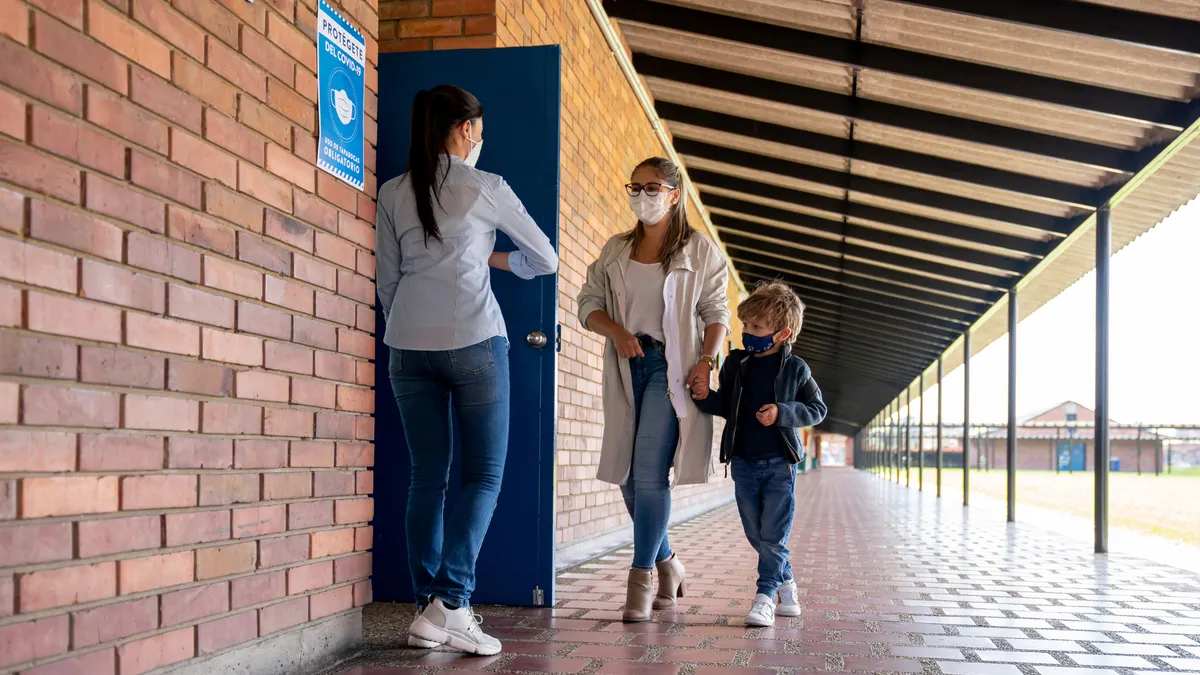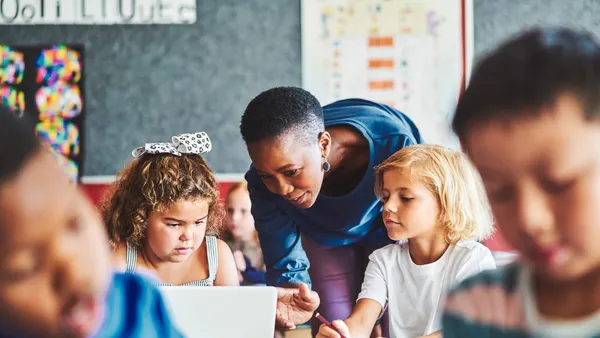Dive Brief:
- The pandemic showed how virtual meeting options can provide families with more flexibility to meet with educators, and that mobile apps increased the timeliness of this communication, according to a new report on a series of six parent and educator focus groups held by the UChicago Consortium on School Research.
- Language translation tools in mobile apps also allowed for direct and improved communication between educators and families. Virtual and in-person forums hosted by schools connected parents with each other and deepened their sense of community, according to the report.
- Additionally, when an educator understood their students’ family and community contexts, it improved how they could reach and communicate with families, the report said. But teachers and parents said in the study they still need more support, collaboration and guidance on communication.
Dive Insight:
Increased technology use can improve communication between schools and families, the report found, but this strategy is only practical if all families have access and support to use this technology.
The pandemic created a real need for parents and educators to be resourceful when communicating with each other as schools shifted to 100% virtual learning spaces, and technology was part of that solution, said David Orta, a senior research analyst at the UChicago Consortium and a co-author of the report.
Previous surveys have found schools are looking to spend the same amount of time or more on family engagement this school year than last, and building parent trust is a top priority. Technology and school communication experts explored the implications of using mobile platforms rather than more traditional channels to increase family engagement in a webinar hosted Tuesday by ParentSquare, a for-profit school communication services provider.
A report issued this week by ParentSquare found that among the 1,316 administrators, teachers and staff surveyed, 47% reported still using paper flyers to communicate with parents. Close to two-thirds said they want to eliminate that method within the next two to three years, according to the ParentSquare report.
Additionally, 35% of respondents reported wanting to shift toward using a mobile app, and 30% want to use texting more to communicate with parents in the near future.
The latest ParentSquare data matches up with previous research showing parents are overwhelmed by school communications, said Trinette Marquis, executive director of the California School Public Relations Association. Parents increasingly want to talk to schools digitally so they can easily look back and review the conversation, she said during the webinar.
When schools use platforms like voicemail and paper flyers to communicate, Marquis said, it’s more difficult for parents to track later on.
But relying on text messages can potentially cause issues, too, said Keith Krueger, CEO of the Consortium for School Networking, an association for school technology leaders. Texting is so accessible that it can get too noisy for families, he said during the webinar.
Parents who do not primarily speak English also appreciate the ability to directly translate their own messages with teachers through mobile apps, Orta said. Before the pandemic, some parents had to rely on a third person to translate and communicate with a school, he added. Instead, translation apps can help build stronger relationships between teachers and these parents.
The ability to hold virtual meeting options for parent-teacher conferences during the pandemic was a game-changer for families who could not meet with teachers in-person at schools, Orta said.
“That was a really welcome pivot that took place, that being able to meet virtually is actually just generally more convenient, whether or not we’re doing remote schooling,” he said.
Even with these benefits, Orta said the UChicago Consortium report understands the boundaries of schools fully relying on technology to communicate, as it is not accessible for all families. But the report does suggest schools could benefit from a continued hybrid approach when engaging with parents, he said.







 Dive Awards
Dive Awards




